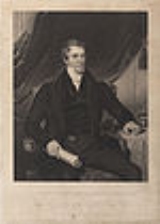
Williams v Carwardine
Encyclopedia
Williams v Carwardine [1833] EWHC KB J44 is an English contract law
case which concerns how a contract comes about through the offer of a reward. It also raises interesting questions about the necessity of reliance on an offer in the formation of a contract
.
. The plaintiff, Mrs Williams, gave evidence at the Hereford assizes
against two suspects, but did not say all she knew. The suspects were acquitted. On April 25, 1831, the victim's brother and defendant, Mr Carwardine, published a handbill, stating there would be a £20 for...
In August, 1831, the Mrs Williams gave more information which led to the conviction of two men (including a Mr John Williams, the plaintiff's husband). She claimed the reward. Mr Carwardine refused to pay. At the trial her motives were examined. It was found that she knew about the reward, but that she did not give information specifically to get the reward. It was apparent that after the first murder trial, Mrs Williams had been savagely beaten by Mr Williams.
) Parke J said,
He held that she was entitled to the reward.
 The Court, consisting of Lord Denman CJ, Littledale J and Patteson J held, that the plaintiff was entitled to recover the £20. The advertisement amounted to a general promise or contract to pay the offered reward to any person who performed the condition mentioned in it, namely, who gave the information.
The Court, consisting of Lord Denman CJ, Littledale J and Patteson J held, that the plaintiff was entitled to recover the £20. The advertisement amounted to a general promise or contract to pay the offered reward to any person who performed the condition mentioned in it, namely, who gave the information.
Two judges clearly stated that motives were irrelevant. Littledale J said, "If the person knows of the handbill and does the thing, that is quite enough." Patteson J said "We cannot go into the plaintiff's motives."
English contract law
English contract law is a body of law regulating contracts in England and Wales. With its roots in the lex mercatoria and the activism of the judiciary during the industrial revolution, it shares a heritage with countries across the Commonwealth , and the United States...
case which concerns how a contract comes about through the offer of a reward. It also raises interesting questions about the necessity of reliance on an offer in the formation of a contract
Contract
A contract is an agreement entered into by two parties or more with the intention of creating a legal obligation, which may have elements in writing. Contracts can be made orally. The remedy for breach of contract can be "damages" or compensation of money. In equity, the remedy can be specific...
.
Facts
Walter Carwardine was murdered in HerefordHereford
Hereford is a cathedral city, civil parish and county town of Herefordshire, England. It lies on the River Wye, approximately east of the border with Wales, southwest of Worcester, and northwest of Gloucester...
. The plaintiff, Mrs Williams, gave evidence at the Hereford assizes
Assizes
Assize or Assizes may refer to:Assize or Assizes may refer to:Assize or Assizes may refer to::;in common law countries :::*assizes , an obsolete judicial inquest...
against two suspects, but did not say all she knew. The suspects were acquitted. On April 25, 1831, the victim's brother and defendant, Mr Carwardine, published a handbill, stating there would be a £20 for...
whoever would give such information as would lead to the discovery of the murder of Walter Carwardine.
In August, 1831, the Mrs Williams gave more information which led to the conviction of two men (including a Mr John Williams, the plaintiff's husband). She claimed the reward. Mr Carwardine refused to pay. At the trial her motives were examined. It was found that she knew about the reward, but that she did not give information specifically to get the reward. It was apparent that after the first murder trial, Mrs Williams had been savagely beaten by Mr Williams.
Nisi prius
At the trial (nisi priusNisi prius
Nisi prius is a historical term in English law. In the nineteenth century, it came to be used to denote generally all legal actions tried before judges of the King's Bench Division and in the early twentieth century for actions tried at assize by a judge given a commission. Used in that way, the...
) Parke J said,
"The motive was the state of her own feelings. My opinion is, the motive is not material."
He held that she was entitled to the reward.
Court of King's Bench

Two judges clearly stated that motives were irrelevant. Littledale J said, "If the person knows of the handbill and does the thing, that is quite enough." Patteson J said "We cannot go into the plaintiff's motives."
See also
- Carlill v Carbolic Smoke Ball Company
- Shuey v United States, 92 US 73 (1875)
External links
- Full text of the judgment on Bailii

